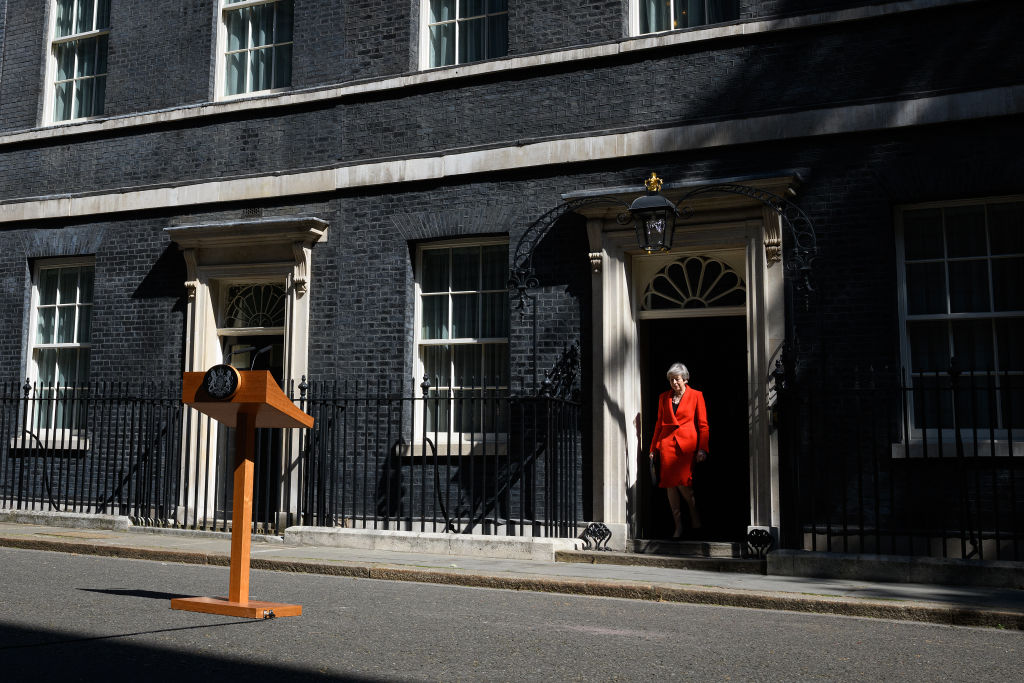After defying political gravity for three years, Theresa May brought her tortured tenure as prime minister to a close on Friday.
"I will shortly leave the job that it has been the honor of my life to hold," she said outside Downing Street, her voice quivering in the morning sunshine. And with that, she's off -- or at least she will be later in the summer, once a new Conservative leader is elected.
Her statement sets up a few more hectic weeks of political drama in Westminster. For now, though, we're following May's lead and getting out of here.
Theresa May has been criticized for referring in her resignation speech to the Grenfell Tower fire, a disaster that will be remembered as a low point in her tenure.
While listing her domestic achievements in the statement on Friday, May said: "I set up the independent public inquiry into the tragedy at Grenfell Tower – to search for the truth, so nothing like it can ever happen again."
She added that she used her premiership "to fight the burning injustices that still scar our society."
72 people died when the tower block in west London caught fire in July 2017, and May was heavily criticized for Conservative policies before the disaster and her slow response in the aftermath.
That criticism intensified after her resignation speech. "Many of the underlying issues at Grenfell were due to unsafe conditions that had been allowed to fester under Tory governments," Matt Wrack, the general secretary of the Fire Brigades Union, said in a statement.
"For the outgoing Prime Minister to suggest that her awful response to Grenfell is a proud part of her legacy is, frankly, disgraceful," he added.
Emma Dent Coad, the Labour MP of the London borough in which Grenfell Tower is located, added: "From the first day of her awkward visit to Grenfell, to her last day congratulating herself for failures, Theresa May should be ashamed of her actions and lack of leadership."
It began with promise and ended in tears: An emotional Theresa May finally announced the end of her short but tumultuous tenure as the UK's prime minister on Friday, her voice quivering as she spoke.
May's three-year term saw a disastrous general election, two no confidence motions, a series of torturous negotiations with the EU and a handful of geopolitical crises.
But while her failure to deliver Brexit is certain to define her legacy, she'll be remembered for far more besides.
The honeymoon: May was swept into power after a condensed leadership contest, profiting from David Cameron's resignation in the wake of the Brexit vote. Riding high in opinion polls throughout a lengthy honeymoon period, May promised to secure a positive Brexit deal from the European Union -- but threatened to walk away from discussions if she couldn't get one.
Cozying up to Trump: A few months into her tenure, May became the first major world leader to visit the new US President in January 2017. But her visit was dominated in the British media by an unfortunate photograph of her walking hand-in-hand with the President, who is unpopular in the UK.
Humiliation at the polls: The turning point of May's premiership was a catastrophic snap general election in June 2017. Hoping to capitalize on her lead in opinion polls, May's gamble wiped away her parliamentary majority and irreparably damaged her authority.
A woeful campaign, which saw a U-turn over a so-called dementia tax, a damaging refusal to take part in TV debates, and a series of uninspiring slogans including the quickly meme-ified "strong and stable," allowed Jeremy Corbyn to upset the odds and force May into a minority government propped up by the DUP. She shed "a little tear" on election night, she later told the BBC.
source: CNN
image credit: Getty images



